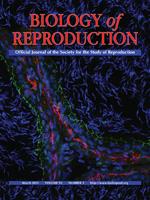Genome-wide RNA profiling studies have identified hundreds of transcripts that are highly expressed in mammalian male germ cells, including many that are undetectable in somatic control tissues. Among them, genes important for spermatogenesis are significantly enriched. Information about mRNAs and their cognate proteins facilitates the identification of novel conserved target genes for functional studies in the mouse. By inspecting genome-wide RNA profiling data, we manually selected 81 genes for which RNA is detected almost exclusively in the human male germline and, in most cases, in rodent testicular germ cells. We observed corresponding mRNA/protein patterns in 43 cases using immunohistochemical data from the Human Protein Atlas and large-scale human protein profiling data obtained via mass spectroscopy. Protein network information enabled us to establish an interaction map of 38 proteins that points to potentially important testicular roles for some of them. We further characterized six candidate genes at the protein level in the mouse. We conclude that conserved genes induced in testis tend to show similar mRNA/protein expression patterns across species. Specifically, our results suggest roles during embryogenesis and adult spermatogenesis for Foxr1 and Sox30 and during spermiogenesis and fertility for Fam71b, 1700019N19Rik, Hmgb4, and Zfp597.
How to translate text using browser tools
21 January 2015
Combining RNA and Protein Profiling Data with Network Interactions Identifies Genes Associated with Spermatogenesis in Mouse and Human
Fabrice G. Petit,
Christine Kervarrec,
Soazik P. Jamin,
Fatima Smagulova,
Chunxiang Hao,
Emmanuelle Becker,
Bernard Jégou,
Frédéric Chalmel,
Michael Primig
ACCESS THE FULL ARTICLE

Biology of Reproduction
Vol. 92 • No. 3
March 2015
Vol. 92 • No. 3
March 2015
epigenetics
gene expression
genomics
interactome
male fertility
microarray
proteome




